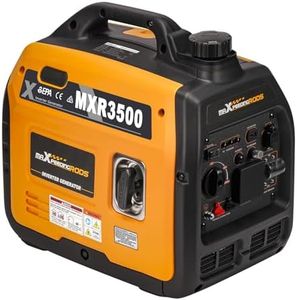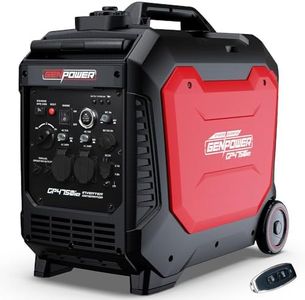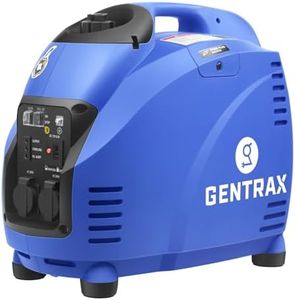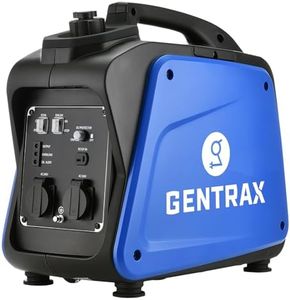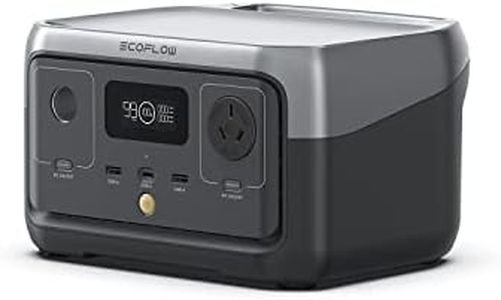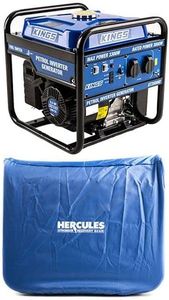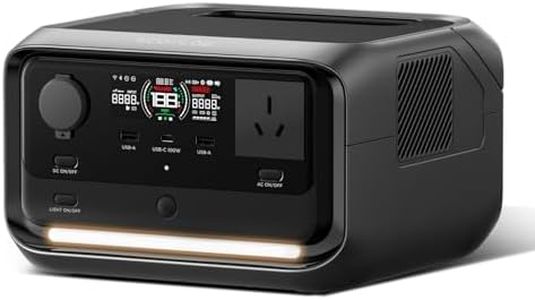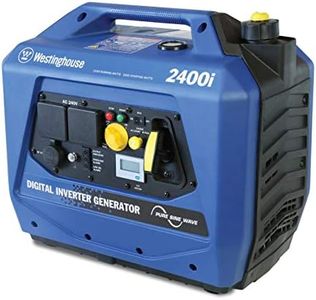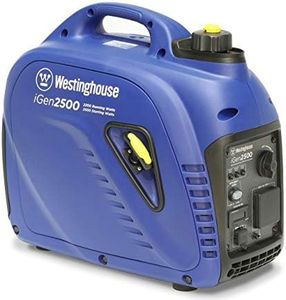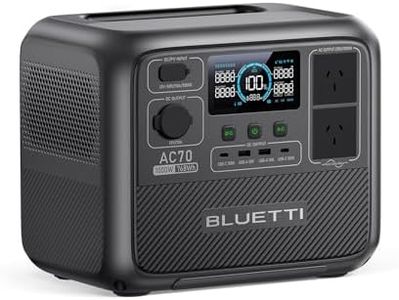We Use CookiesWe use cookies to enhance the security, performance,
functionality and for analytical and promotional activities. By continuing to browse this site you
are agreeing to our privacy policy
10 Best Quietest Portable Generator
From leading brands and best sellers available on the web.By clicking on a link to a third party's website, log data is shared with that third party.
Buying Guide for the Best Quietest Portable Generator
Choosing the quietest portable generator involves balancing your need for silence with power output and portability. When comparing generators, you want something that will supply enough electricity for your needs, remain easy to move around, and most importantly, operate as quietly as possible. Paying close attention to specific features and technical specs is the key to a satisfying purchase, as it can help you determine which generator is the right match for your situation—whether for camping, outdoor events, home backup, or work sites.Noise Level (dB)Noise level is perhaps the most critical factor if you're seeking a quiet generator. It is measured in decibels (dB), typically specified at a set distance (often 23 feet away). The lower the decibel rating, the quieter the generator operates. A typical range is from about 48 dB (comparable to a quiet conversation) up to 70 dB (like a vacuum cleaner). If absolute silence is vital—say, for camping, tailgating, or home backup at night—look for models at the lower end of the spectrum, ideally under 55 dB. If some noise is acceptable, mid-range options might suffice. Always check if the listed dB value is for economy mode or full load; pick based on the environment and tasks you anticipate.
Power Output (Wattage)Power output tells you how much electrical load the generator can handle, typically measured in starting (surge) watts and running (rated) watts. Lightweight, quiet generators tend to offer anywhere from 1,000 to 3,000 running watts. Smaller wattage generators are quieter but can power fewer devices, suitable for basics like phones and lights. Higher wattage models can handle more demanding appliances but may be noisier. To pick appropriately, make a list of all the devices you'll want to power simultaneously and add up their wattage requirements—you'll want a generator with enough running wattage for your needs, possibly opting for a lower-wattage unit if minimizing noise is your main concern.
Portability (Weight and Size)Portability measures how easy it is to carry or move the generator. It is affected by both the actual weight and the physical dimensions, as well as features like handles or wheels. The lighter and more compact the unit, the more quietly it can often be positioned farther from work or living areas. Lightweight models (under 50 pounds) are ideal for camping or tailgating. Heavier units typically mean higher power but may compromise silence due to larger engines. Think about how and where you'll use the generator: those needing to carry it frequently or use it in remote settings should prioritize smaller, lighter designs.
Inverter TechnologyGenerators with inverter technology adjust their engine speed based on the power demand, making them much quieter than conventional generators that run at full speed all the time. Inverter generators also produce cleaner, more stable electricity, which is safer for sensitive devices like computers or phones. Most quiet portable generators use inverter technology. If noise is a top priority and your appliances require stable power, choosing a generator with this feature is wise.
Fuel Type and EfficiencyFuel type (gasoline, propane, or dual-fuel) and efficiency affect both operating cost and noise. Some fuels burn quieter than others, and fuel efficiency determines how often you'll have to refuel or how long you can run the generator at one time. Gasoline models are common, but propane options may offer quieter operation. If your quiet operation periods are long, look for high-efficiency units with a large tank or good runtime, which will also minimize the noise of refueling.
